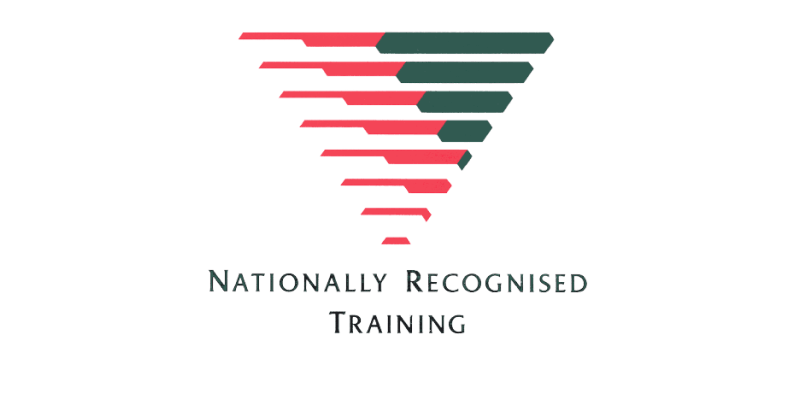About the Course
There’s nothing like seeing your work on the stage or screen for the first time. In this practical and intensive year of study, you’ll gain the essential skills and knowledge to work in a broad range of creative contexts, including theatre, film, fashion, advertising, wig styling, special effects and prosthetics.
With small classes and content delivered by practicing professionals, students benefit from deep industry connections and contemporary expertise from all sectors of arts and entertainment. The course includes visits to working industry venues such as the Opera Centre and City Recital Hall.
Collaboration on NIDA productions allow you to refine your craft, build your professional portfolio and collaborate with current and future industry professionals.
At the end of the year, you will showcase your work as part of a filmed performance in one of NIDA’s theatres. Attended by entertainment industry practitioners and producers, this is an ideal opportunity to display your skills and connect with industry.
The CUA51020 Diploma of Screen and Media (Specialist Make-up Services) has a number of valuable learning outcomes. You will:
- gain skills and knowledge to design and apply make-up, create wigs and style hair and hair pieces.
- learn specialist skills relating to prosthetics and special effects make-up
- develop the ability to work as a part of a team or independently in make-up services.
- develop autonomy in responding to make-up and hair design briefs.
- develop problem-solving skills for a range of collaborative situations.
- develop skills to work collaboratively with other creative professionals and performers.
2026 dates
Term 1 Monday 2 February – Friday 10 April
Term 2 Monday 27 April – Friday 3 July
Term 3 Monday 20 July – Friday 9 October
2025 dates
Term 1 Monday 3 February – Friday 11 April
Term 2 Monday 28 April – Friday 4 July
Term 3 Monday 21 July – Friday 10 October
Classes are scheduled 4 days per week, 9am–5pm.
The scheduling and delivery of this course each year is subject to minimum enrolment numbers.
The CUA51020 Diploma of Screen and Media (Specialist Make-up Services) course comprises of the following units of competency:
- CUAIND412 Provide freelance services
- CUAIND512 Enhance professional practice using creative arts industry knowledge
- CUAPPR411 Realise a creative project
- CUAPPR515 Establish and maintain safe creative practice
- CUAMUP411 Design, apply and remove make-up
- CUAMUP412 Maintain make-up and hair continuity
- CUAMUP413 Style hair for productions
- CUAMUP414 Style wigs and hairpieces for productions
- CUAMUP512 Design and apply specialised make-up
- CUAMUP513 Design and apply special make-up effects
- CUASFX411 Create special effects items
- SHBHDES004 Create classic long hair up-styles
- SHBHDES005 Select and apply hair extensions
- BSBCRT512 Originate and develop concepts
- BSBCRT413 Collaborate in creative processes
- Make-up artist
- hair and wig stylist
- special effects and prosthetics
- make-up artist across traditional
performance (film, TV, theatre, opera,
dance) - digital (film, screen, video,
game design) - immersive theatre
and events.
Admissions Criteria
For more information, read our Admissions Transparency Statement.
To be eligible for entry to the NIDA CUA51020 Diploma of Screen and Media (Specialist Make-up Services) you must:
- Be an Australian citizen, Australian permanent resident or New Zealand citizen. This course does not accept international students.
- Have reached the age of 18 before the commencement of the course (in some circumstances NIDA may select candidates who turn 18 during their course).
- Have completed their Higher School Certificate or equivalent; ATAR is not required.
- Demonstrate a high level of practical ability, potential and motivation at the interview or audition.
- Complete the interview/audition requirements for the course.
We select applicants who:
- Demonstrate potential to create and/or apply make-up and hair designs.
- Exhibit a capacity to collaborate.
- Communicate effectively.
- Respond to direction and feedback.
Recognition of Prior Learning is a process that involves assessment of an individual’s relevant prior learning to determine the credit outcomes of an individual application for credit.
NIDA may grant credit for:
- Formal study undertaken in recognised education institutions in Australia, including universities, colleges, TAFE and other post-secondary education institutions, and for study at recognised overseas institutions.
- Credentialed courses provided by recognised professional bodies, employers and other authorities, where appropriate certification is available.
- Prior learning, where such learning can be sufficiently evidenced.
The principles underlying the assessment of credit transfer/Recognition of Prior Learning (RPL) applications are that the policy and procedures are:
- Aligned to the Higher Education Standards Framework and the Vocational Standards for RTOs.
- Designed to maintain the integrity and reputation of NIDA’s accredited courses for which credit or RPL is applied and support the collaborative nature of NIDA’s conservatoire training model.
- Consistent, equitable, transparent and accountable.
- Based on processes of comparable standard and integrity to those used to assess the relevant subject.
- That students are not disadvantaged in achieving the expected learning outcomes for the course of study or qualification.
How to apply
NIDA encourages applications from First Nations students, Culturally and Linguistically Diverse students, and those from under-represented backgrounds, with different levels of experience in the entertainment industry.
All applications must be submitted online via the NIDA website.
There are five steps to applying:
STEP 1
New applicants: Create your application account here. You will be sent an automatic email with your login details to continue your application.
Returning applicants: If you have previously applied (in 2020-2024) and your email address already exists in the application system, you will not be able to create a new account. Please follow the link below to reset your password, using your email address as your User Login ID. Reset your password here.
STEP 2
Log in, select the green ‘New Application’ button and complete the online form.
You will be asked to submit your personal details, examples of previous experience and reasons for interest in this course.
STEP 3
Upload the following documentation to the online form:
- Evidence of your most recent qualification if you have one (e.g. a school report, Higher School Certificate, university transcript, statement of attainment).
- Proof of identification and citizenship (e.g. Australian passport, Australian driver’s licence, birth certificate. The scanned document needs to show your date of birth).
- A recent photograph (head and shoulders, in colour, well lit, plain background).
- One introduction/audition video as a link to an unlisted YouTube video.
STEP 4
Agree to the terms and conditions of application and click submit. You will receive a confirmation email when your submission is completed in full.
STEP 5
You will be contacted in early November regarding the outcome of your application and whether we are able to meet with you at a callback session. You will be provided with an opportunity to notify us of the best available date and time for your interview/callback, either face-to-face or online. To assist with your planning, we will publish suggested dates and times on the course page.
If we have invited you, please attend your callback session. Not everyone who submits a video will be invited to a callback.
- There are no application fees for 2026 applicants.
- Applications for 2026 intake of Diploma of Stage and Screen Performance and Diploma of Musical Theatre close on 15 September 2025 and Diploma of Screen and Media (Specialist Make-up Services) and Diploma of Live Production and Technical Services close on Monday 10 November 2025. NIDA may not be able to accept applications after this date.
- There are a limited number of places available in each of our diploma courses. Selection is based on merit; not all applicants who meet the published entry requirements will receive a study offer.
- All applicants are required to review the course information, including the schedule of tuition fees, published on the course page.
- It is not possible to provide applicants with individual written or oral feedback on their audition.
- Applicants who receive a study offer for 2025 must accept the offer within the time frame indicated. It is not possible to defer a study offer at NIDA.
- NIDA encourages applications from people from diverse backgrounds, with different levels of experience in their chosen area of interest.
As part of your application, you are required to provide a link to a pre-recorded video introduction.
Your video submission needs to be a short, one-minute introduction to camera, introducing yourself and explaining your experience.
Your video introduction should be submitted as an unlisted YouTube video link, in the appropriate field of your application. You will only be able to upload one video.
Click HERE for instructions on how to upload an unlisted YouTube video.
See our how to apply page for more information around shooting your video – including sound, lighting, formatting & uploading.
Callback dates will be announced once 2025 applications open.
- All applicants will be notified regarding the outcome of their application status.
- Successful applicants will be contacted to arrange a suitable callback session.
- Callback dates will be advised via this course page.
- Callbacks may be conducted face-to-face or online in November.
- More information will be available here when applications close.
At the callback, you will:
- Discuss any previous experience or training.
- Discuss your portfolio.
- Bring a written testimonial from a teacher, colleague or employer.
- Bring along any documentation such as portfolios, photos and/or drawings to support your application.
- Undertake a written short-answer questionnaire.
- Undertake a make-up task, using make-up and tools provided.
After the callback:
- If we are able to offer you a place on the course, we will contact you in December 2025 via phone and email to advise you of your course offer.
- You will be given a time period in which to accept or reject the course offer for the 2026 intake.
Latest News
Fees
The CUA51020 Diploma of Screen and Media (Specialist Make-up Services) is only open to domestic students.
Domestic students are Australian citizens, Australian permanent residents and New Zealand citizens.
Tuition Fees for CUA51020 Diploma of Screen and Media (Specialist Make-up Services)
2026 full course fee: $17,700
Other costs
NIDA will provide the greater part of resources and materials required for the training. Students will need to contribute $1,850 towards make-up, special FX and hair kits, which become the students’ personal property. These invoices will be charged at $975 in Term 1 and Term 2 and this amount must be paid prior to the commencement of each term.
VET Student Loans
NIDA is an approved VET Student Loans provider. Find out if you’re eligible here.
Centrelink
Eligible students, who are Australian residents, can apply to Centrelink for financial assistance through Youth Allowance, Austudy or ABSTUDY. Visit Centrelink or call 132 490 for more information.
Further Information
If you have any further questions about the application process, please contact:
Email: [email protected]
Phone: +61 (02) 9697 7516
Further information regarding NIDA’s vocational training products can be found at Training.gov.au
NIDA is registered by the Australian Skills Quality Authority (ASQA) under the National Vocational Education and Regulator Act 2011 to deliver Vocational Education and Training (VET) services. NIDA is a NVR Registered Training Organisation (RTO): ID number 90349.
Frequently Asked Questions
Looking for more info about NIDA courses, admissions and facilities? Check our FAQ page for answers to commonly-asked questions from future students.
NIDA is registered by the Australian Skills Quality Authority (ASQA) to deliver Vocational Education and Training (VET) services. RTO (Registered Training Organisation) code: 90349


What does it take to put on a show?
Take a peek behind the curtain to see how our students collaborate each year on our June and October Student Production seasons.
